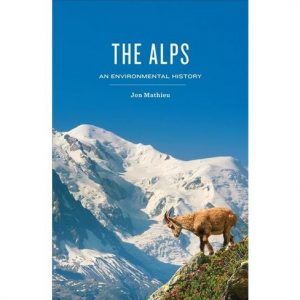
![]()
I have to confess I’m quite surprised at the positive reviews this book has been getting on Amazon UK. Yes it covers a lot of ground. But boy is it boring! Jon Mathieu clearly knows a lot about his subject. But, as he says himself, this book evolved from lecture notes delivered to his students. And it reads that way.
Here’s a typical sample, from chapter five, ‘Paths To The Nation state’, under the subsection heading ‘Trajectories of Regional Development’: ‘Power relations as they existed before the consolidation of territorial state institutions in the 16th century were a starting point for the respective paths of constitutional development.’ Heavy going.
I’ve read a good number of books over the years that deal, as this does, with the interaction between landscapes and humanity, one of the best of which is Britain Begins, by Barry Cunliffe (or at another level, Earth, by Simon Fortey [1]). The best of this sort of writing manages to be both simple and accessible whilst conveying complex ideas about multifaceted interacting subjects. I found this to be rather leaden, and whilst mention is made of all sorts of exciting moments in history, from Hannibal to Napoleon, it never manages to be exciting.
There aren’t enough images in this book either. The two maps at the start are good. But more, and better detailed, would’ve been helpful. Indeed, I think decent geological maps, and more on the geology/geography, etc, not to mention occasional political maps, would’ve been good. Mention is also made of numerous objects d’art, but images of these, which might’ve imparted a bit of interest and excitement, are notable by their absence [2]. And the scant few images there are simply confirm that more would’ve been better.
Personally I found this hard going, and when I encountered, as I did numerous times, aspects in which I have a prior interest and relatively limited knowledge, such as the Napoleonic era, in which the Alps play a significant part, this book added little or nothing of interest. Whilst in other areas, such as Hannibal’s crossing of the Alps, or the part they played in WWI, where Italy fought the Austrian-Hungarian Hapsburg empire, about which is like to know more, the coverage is too minimal and dull to do what better books so often achieve, and inspire further reading/interest.
One of the few things I found interesting in the book is how in recent times a transnational European position on The Alps has been growing. One of the best things this has meant is that the Alps have ‘never been as peaceful … as they are today’. Mathieu attributes this to ‘the European unification movement’. And to my mind Brexit (never mind Trump and his wall) seems a retrograde development that threatens this trend toward internationalism, understanding and cooperation.
For me this was a missed opportunity. Overly academic in tone, and touching on many exciting and interesting subjects, and yet never really managing to scale the heights of exciting, or even climb the foothills of merely interesting. Disappointing.
I found the above video, on YouTube. Being short, succinct, and illustrated with imagery throughout, I enjoyed it much more than the book.
NOTES:
[1] Admittedly the scope of these other books is bigger, especially Fortey’s Earth, in which humanity is a tiny part. But the basic underlying point is that these books are accessible, enjoyable, exciting, even inspiring. Turgid academic prose they not.
[2] One might’ve expected to hear mention of Caspar David Friedrich, and preferably see at least one of his paintings reproduced. There is a painting very like his work, showing the Slovenian Alpine peak of Triglav, by Markus Perhard.
